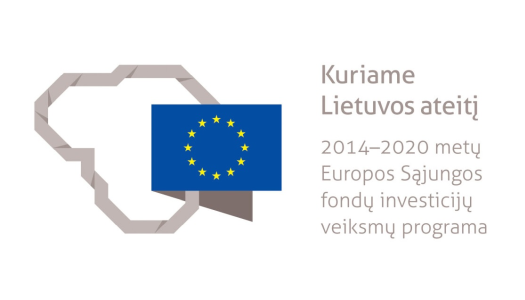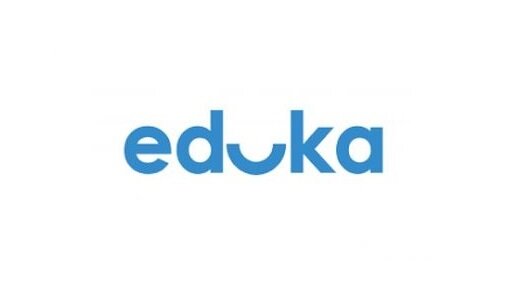“Andrea Schleicher (2010) teigė: „Mokyklos turi paruošti mokinius dar nesukurtoms darbo vietoms, tokioms technologijoms, kurios dar nėra sukurtos, nes dar bus sugalvotos ir iškils problemų, apie kurias mes nežinome “. Tai bus pagrindinis projekto tikslas. Taip pat – tobulinti mokinių kompetencijas, kurios laikomos pagrindine stiprybe siekiant visiškai realizuoti asmenį kaip pilietį, patvirtinti teisę į garbingą gyvenimą ir įsilieti į darbo rinką. Pagrindiniai įgūdžiai, kurių reikės, bus technologijos, menas ir dizainas (STEAM), naudojant mokymosi bendradarbiaujant, IKT ir kalbą šiame projekte pagrindinė kalba yra anglų kalba.”
Projektas vykdomas 2017-2020 metais. Pagrindinis projekto koorindatorius – Nyderlandų Rankvianen mokykla. Kiti partneriai – mokyklos iš Italijos, Graikijos, Švedijos, Šiaurės Airijos, Vokietijos, Rumunijos. Vizitų užsienio mokyklose metu net patys jauniausi dalyviai gyvena priimančios šalies vaikų šeimose, vystoma užsienio kalba, socialiniai įgūdžiai, tarptautiškumo kompetencija, tolerancija. Vaikai ir mokytojai susipažįsta kitų šalių kultūros reiškiniais, lanko technologijų parkus, muziejus ir parodas.
Projekto rezultatas – 6 STEAM temų pamokų ciklai, kuriuose vaikai nagrinėja ir praktiškai supažindinami su įvairiais žmogaus gyvenimo aplinkos objektais ir reiškiniais: kasdienio gyvenimo daiktais ir įrankiais, pastatų architektūra, komunikacijos priemonėmis, maisto gamybos technologijomis, robotų technologijomis, cheminėmis medžiagomis ir kt.
Projektą finansuoja Europos Sąjunga. Partneriui Lietuvoje skirta 28 585 eurų.
Projekto “Little Scientists Building and Design Europe” aprašymas anglų kalba:
Andrea Schleicher (2010) said: “Schools have to prepare students for jobs that have not yet been created, technologies that have not yet been invented and problems that we don’t know will arise.” This will be the main target of the project. As well to enhance in students competences which are considered as key strength for a complete realization of the person as citizen, to affirm the right to a respectable life and to gain admittance in the world of the job.The main skills to be implemented will be technology art and design (STEAM) by using collaborative learning ,ICT, and the language in this project: English.
What is important to underline is that there are not only cognitive skills but also other emotional competencies, and they can be requested through a group-work methodology that will inspire those relational dynamics allowing the person to interact with others in order to succeed in life and in professional practice. The project will produce an innovative approach to addressing to students by providing an attractive way of learning. The teacher, plays the important role of facilitator, creating the environment where directed and guided interactions can occur. Students work together on a task as they develop across the curriculum. Also, instructors choose meaningful and challenging tasks for the students to work. In this way, instructors manage socratic dialogue that promote deeper learning, collaborative Learning and project-based learning.
In the 21st century workplace on schools , success requires more than basic knowledge and skills. In a project, students learn how to take initiative and responsibility, to build their confidence, solve problems, work in teams, communicate ideas, and manage themselves more effectively. This should happen in an educational context where STEAM, ICT and language become tools to communicate and share experiences with other students of the European Union.
The project will take three years and there will be six transnational project meetings and four short-term exchanges of groups of pupils. We try to exchange as much students ad we can. At least four on every short-term exchange, being aware that the grant aims to provide 100 mobities. Even though, we wil try to exchange as many pupils as possible, for the experience to reach the highest enrichment point, within the established budget. All project activities and results will be widely disseminated and the evaluation of project’s progress will be done regularly. Students will participate in all stages of the project: planning, implementation and evaluation. Sweden and Northern Ireland do not travel with pupils, they would participate in the transnational meeting held during the exchange. Both countries are totally involved in this project and take their responsibility to share the experience of the project meetings. The students are involved in online meetings by skype. We learn through this cultural lens by interacting with others and following the rules, skills, and abilities shaped by our culture. If they are in our schools the children of refugees, asylum seekers and migrants will be involved in project activities. It will help them adapt to life in foreign countries, and the children in their own countries will learn to be tolerant and helpful in the present time of the refugees' crisis in Europe and in the future.
.png)


